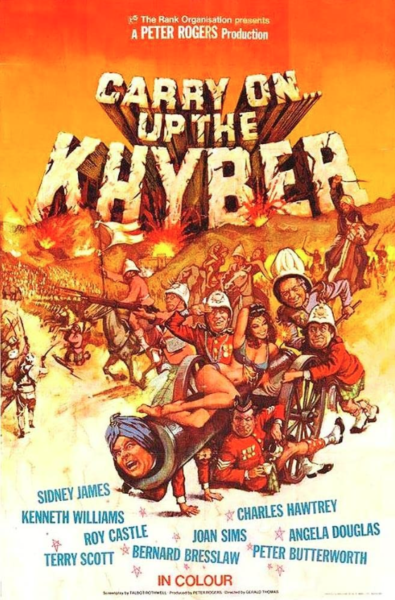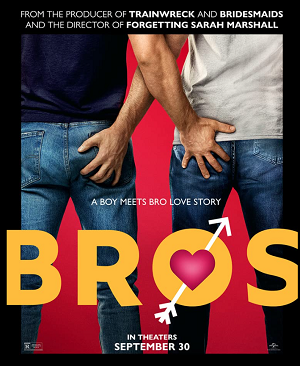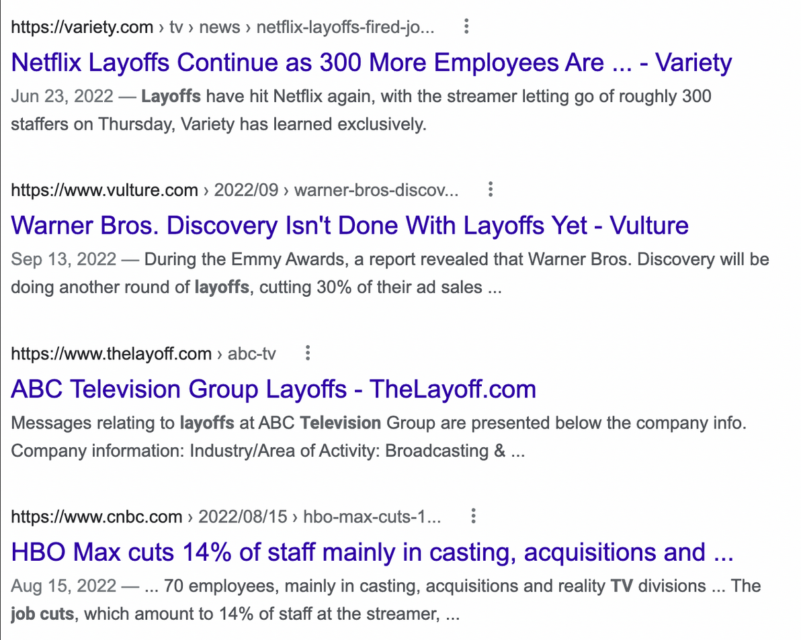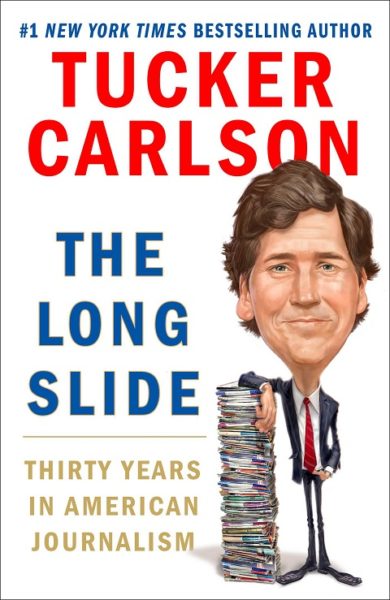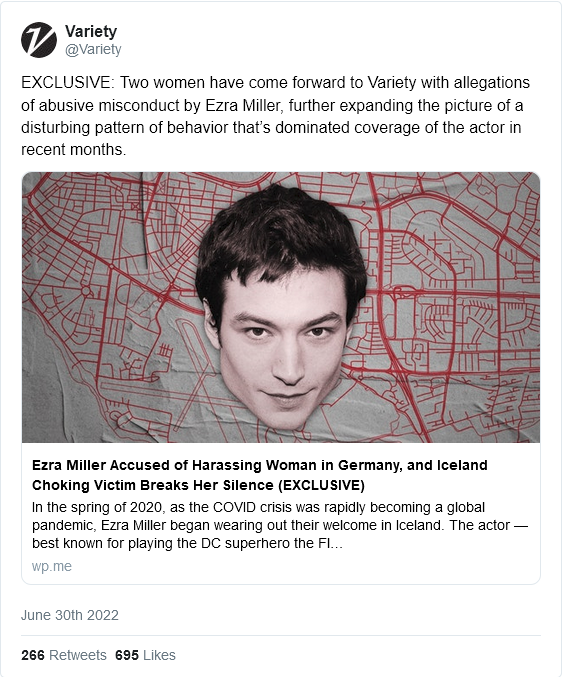I was reminded, earlier today, that one of the interesting side effects of knowing something about hand-to-hand and contact-weapons-based martial arts makes a big difference in how you see movies.
Most people don’t have that knowledge. So today I’m going to write about the quality of sword choreography in movies, and how that has changed over time, from the point of view of someone who is an experienced multi-style martial artist in both sword and empty hand. I think this illuminates a larger story about the place of martial arts in popular Western culture.
The first thing to know is this: with only rare exceptions, any Western swordfighting you see in older movies is going to be seriously anachronistic. It’s almost all derived from French high-line fencing, which is also the basis for Olympic sport fencing. French high-line is a very late style, not actually fully developed until early 1800s, that is adapted for very light thrusting weapons. These are not at all typical of the swords in use over most of recorded history.
In particular, the real-life inspirations for the Three Musketeers, in the 1620s, didn’t fight anything like their movie versions. They used rapiers – thrusting swords – all right, but their weapons were quite a bit longer and heavier than a 19th-century smallsword. Correspondingly, the tempo of a fight had to be slower, with more pauses as the fighters watched for an opening (a weakness in stance or balance, or a momentary loss of concentration). Normal guard position was lower and covered more of center line, not the point-it-straight-at-you of high line. You find all this out pretty quickly if you actually train with these weapons.
The thing is, real Three Musketeers fencing is less flashy and dramatic-looking than French high-line. So for decades there was never any real incentive for moviemakers to do the authentic thing. Even if there had been, audiences conditioned by those decades of of high-line would have thought it looked wrong!
Eric S. Raymond, “A martial artist looks at swordfighting in the movies”, Armed and Dangerous, 2019-01-13.
December 1, 2022
QotD: Movie swordfighting
November 13, 2022
Carrying on about the Carry On movies
In The Critic, Alexander Larman looks back at one of the longest-running film series beginning with 1958’s Carry On Sergeant (not to be confused with the earlier — and reputedly terrible — interwar Canadian film of the same name) and continuing with many more until the filmic disaster of Carry On Emmanuelle in 1978 (there was also a 1992 attempt to revive the franchise, which failed):
In Alan Bennett’s The History Boys, it is decreed by the contrarian history master, Irwin, that “if George Orwell had lived, nothing is more certain than that he would have written an essay on the Carry On films”.
We are invited to take Irwin’s instructions that the Carry On films represent a valuable insight into British social history with suitable detachment. (The precise, suitably pompous quote is that “while they have no intrinsic merit, they acquire some of the permanence of art simply by persisting, and acquire an incremental significance if only as social history”.)
Yet Irwin (or Bennett) was almost certainly right that, had Orwell survived into the Sixties and Seventies, he would have found the Carry On film series both repellent and fascinating. It is literature’s, and history’s, loss that we do not have an account of Orwell’s thoughts on the antics of Charles Hawtrey, Kenneth Williams, Barbara Windsor et al.
In 1941, Orwell wrote of postcards by the cheerfully lowbrow artist Donald McGill that “your first impression is one of overpowering vulgarity” and that “what you are really looking at is something as traditional as Greek tragedy, a sort of sub-world of smacked bottoms and scrawny mothers-in-law which is a part of Western European consciousness”. He goes on to say that “jokes barely different from McGill’s could casually be uttered between the murders in Shakespeare’s tragedies”.
[…]
The joy of watching the Carry On films, then, is twofold. On the one hand, the hackneyed stories, two-dimensional characterisation and laboured puns and innuendo can be enjoyable, on a purely basic level, but hardly threaten to aspire to the levels of great art.
Yet on the other, the cheerfully Rabelaisian sentiments of the pictures — in which all men and women are defined purely in sexual and scatological terms — exist on a level of reductio ad absurdum.
It is no coincidence that the best Carry On films contain a vein of social satire in their mocking of great British institutions, whether it be the NHS, MI5, the army or the Raj, and the final set piece of Carry On Up The Khyber — in which the stiff-upper-lip British occupiers ignore the Afghan invaders while taking formal dinner in black tie — rises to a level of surrealist genius that would have made Buñuel proud.
There is occasional talk of making another Carry On film, but with all the principal cast (save the ever-sprightly Dale) now dead and with the world a very different place, it is impossible to imagine that we will ever see, say, Carry On Tweeting or the like.
There is every possibility that a really top-notch cast could be assembled, if there was any serious intent behind it — I would love to see Andrew Scott, for instance, offer a more dynamic take on the kind of roles that Williams essayed, because he would do so brilliantly, and if the script could be written by the award-winning likes of Patrick Marber or Richard Bean, it could be a thing of innuendo-heavy beauty.
But then the Carry On series never was a thing of beauty. In its grim and hilarious way, it took every British national stereotype, pulled its trousers down, and gave it a hearty slap on its bare buttocks. Some might find this offensive; others might mourn its loss from public life.
In either case, we shall not look upon its like again. Dr Nookey, Francis Bigger, Professor Inigo Tinkle, Vic Flange: your services are no longer required. To which unkind cut we must solemnly say: “Ooh, matron.”
November 12, 2022
The Final Bloody Chapter of Operation Reinhard – War Against Humanity 085
World War Two
Published 9 Nov 2022The genocide of the Jews of Eastern Europe concludes with Operation Harvest Festival — Aktion Erntefest when 42,000 are murdered in the Lublin district.
(more…)
November 10, 2022
Contemplating the end of brand franchises like Star Wars
Ted Gioia is wondering how Star Wars ends:
Lately, I’ve been wondering how Star Wars ends.
Let me be clear, I’m not worried about how the story resolves, or what happens to the characters. I have zero interest in all that. Darth Vader can win the Nobel Peace Prize, for all I care.
I’m more concerned with how a powerful brand franchise loses its stranglehold on the culture. And it’s not just Star Wars, it’s all those other stories that never achieve closure. I’m talking about Batman and Indiana Jones and James Bond and the Marvel Cinematic Universe (or MCU, for short), and the rest of them.
They all die, sooner or later. But how?
Heroes in capes and colorful costumes seem invincible now, if only because these fictional flâneurs are bigger than anything else in commercial culture. If Spiderman and Batman were real people, they would boast higher incomes and net worth than any flesh-and-blood entertainer in the world. The Marvel Cinematic Universe, which Disney acquired back in 2009, must be worth ten or twenty times the $4 billion they spent back then — total revenues from Marvel brands since then are somewhere around the one trillion dollar mark.
No pop star in history has ever possessed that kind of earning power.
Can these franchises just go on forever? The management team at Disney certainly must hope so, judging by their never-ending slate of Star Wars, Marvel, and other brand extension offerings. No Time to Die isn’t just the name of the 25th James Bond movie, but a promise for the future — why not another 25 films in the series? Or 50 or 100?
But brand franchises do die, or become so tired that few people care anymore. Universal Studios made so much money from Ma and Pa Kettle films that these corny comedies allegedly saved it from bankruptcy in the 1940s, but by 1960 audiences had lost interest in the predictable formulas of the series.
The Carry On films were the most dependable audience draw in British comedy, but after 31 movies the franchise could carry on no longer. A final resuscitation attempt after 14 years not only failed at the box office but was voted the worst British film ever made.
Some franchises not only die, but become genuinely toxic as attitudes evolve — killing, for example, the Charlie Chan franchise, and making it unlikely that Tarzan or the Lone Ranger or many other once lucrative brands will ever enjoy another meaningful payday.
None of this should surprise us, because narratives and protagonists go in and out of fashion like anything else. A story that charmed your grandparents is unlikely to interest your grandchildren.
October 30, 2022
Jatimatic: Finland’s Least Successful PDW
Forgotten Weapons
Published 24 Jun 2022The Jatimatic was a stockless PDW designed by Jari Timari, who co-owned Tampereen Asepaja Oy, a firearms company in Tampere Finland. The firm was founded in the early 1920s, making .22 biathlon rifles, sporterizing military surplus, and other gunsmithing work. In the late 70s he got the idea for a compact 9mm PDW with some unique climb-reducing features, and in 1980 it was introduced as the Jatimatic (JAli TImari). Only about 400 were made, as it was not adopted or purchased in large quantities by anyone (although it was tested by many, including the Finnish Border Guards).
The Jatimatic was made without a stock, instead using a shooting sling for stabilization. It used standard Swedish K magazines, and has a distinctly off-angle appearance. This was done to counteract muzzle climb, as the line of the barrel points directly back into the shooter’s hand. It also has an interesting safety built into the folding front grip – if the grip is closed, the bolt is locked in place.
Production ended in the late 1980s after “permit irregularities” and a robbery of a bunch of Jatimatics from the company premises. The rights to the design were sold to a new company called Golden Gun in 1994, and they attempted to reintroduce it as the GG-95 with a few improvements, but it was a rather complete flop. Its best achievement was getting into several major movies, including Cobra and Red Dawn.
(more…)
October 14, 2022
The commercial failure of Bros
With the movie failing to find much of an audience, the director and lead actor blame homophobia, because that’s far easier than accepting that rom-com movies are quaint, out-of-date, and stale in the modern hookup culture:
In the case of movies, one might respond to Stoller and Eichner by saying that entertainers are supposed to provide products that the viewing public wishes to see. It might surprise the team behind the didactic Bros that many of us watch movies to be entertained, not to be preached at, seeing them as brief, trivial moments of escape from the drudge of daily life, not an opportunity to (as the Victorians would have said) “improve” ourselves. But even though it has proved an abject commercial failure, the movie is nonetheless instructive in how our culture is changing. And both its production values and its failure are likely signs not of the LGBTQ movement’s influence stalling, but of its remarkable success.
[…]
Romance depends upon sex being costly. It was the difficulty of obtaining sex, the need for that delicate, complicated, and unpredictable interpersonal dance between two people, that was the very essence of what it was to be romantic. In a world where sex is not simply casual but remarkably cheap, the notion of romance is dead. Romance requires a particular kind of culture in order to make sense. A world of hookups, one-night stands, and all-pervasive pornography is not one that gives people the cultural grammar and syntax to understand it. That the movie apparently contains scenes of sex and nudity is hardly exceptional today. But that’s the point: A world where sex and nudity are displayed on the screen is not a world where romance has any place. Just as explicit rap lyrics reflect a world antithetical to that in which Frank Sinatra sang “Fly me to the moon”, so the endless tedium of explicit sex on celluloid is not that of Audrey Hepburn and Fred Astaire in Funny Face. Romance depends upon social codes of restraint and modesty, and upon the idea that sex is not something casual but something special, even sacred.
The same point can be made with reference to what we might call romantic tragedy. Take Tolstoy’s Anna Karenina. The story simply could not be set in modern America because Anna, married to the tedious Karenin but falling in love with the dashing Vronsky, would simply file for divorce and move out of Karenin’s house and into that of her lover. The tragic romance is rooted in the impossibility of Anna’s situation, given the way sex is seen through the powerful moral lens of nineteenth-century Russian society. The genre of romantic tragedy depends upon a specific moral framework. So does the genre of romantic comedy. But the sexual revolution has obliterated that moral framework.
To return to Bros, it is frankly as ridiculous to make a rom-com in the twenty-first century as it is to hire a cast and crew on the basis of modern categories of identity rather than professional competence. And, while the Bros team might regard its box office failure as discouraging, it might just as easily be evidence of the triumph of the LGBTQ movement in wider society as it is of a residual resistance to the same. Please don’t blame homophobia for your commercial failure. Romance is dead. And you helped to kill it.
September 26, 2022
Did D-Day win WW2? – a WW2 expert discussion
World War Two
Published 25 Sep 2022WW2 historians Indy Neidell, Spartacus Olsson, and Paul Woodadge moderated by Ryan Socash discuss the meaning and significance of D-Day from historical, current, and future perspectives. Recorded on the road while shooting in Normandy for TimeGhost’s 24-hour documentary on the events of June 6, 1944.
(more…)
September 24, 2022
September 13, 2022
Society would be happier if we all paid even less attention to “the tossers of Tinsel Town”
Ian O’Doherty on the malign influence pretty people who mouth other people’s words for the cameras still exude in our popular culture:
They never learn, do they? If the tumultuous events we have all watched with growing horror over the past few years taught us one thing, it is this – people don’t care what the pampered starlets of Hollywood have to say about politics. If we did, then Hillary Clinton would be comfortably enjoying her second term as the pantsuit POTUS, Jeremy Corbyn would be prime minister of the UK and we would all be driving electric cars.
But regular people are smarter than actors, which seems to drive the luvvies wild with fury. Rather than accepting that maybe, just maybe, there is another side to the argument, the tossers of Tinsel Town insist that anyone who doesn’t fully embrace the so-called progressive agenda is simply a monster.
We saw this recently when Jennifer Lawrence, who used to be quite refreshingly down to Earth, proudly admitted that she had to “work so hard … to forgive my dad and my family” for voting Republican. She also, quite wonderfully, spoke about having “recurring nightmares” about Fox News anchor Tucker Carlson.
In the course of her interview for the cover issue of Vogue magazine – that renowned bastion of proletarian agitation – the Hunger Games actress claimed that she was born a Kentucky Republican, was raised as a Kentucky Republican and had considered herself to be a Kentucky Republican, until she watched an episode of 30 Rock. And then her worldview completely changed.
Now most of us would agree that 30 Rock was a brilliant sitcom. After all, it was so ingenious in its construction that it even managed to make Alec Baldwin look likeable. But would anyone think that Liz Lemon’s line, “I’m not a crazy liberal – I just think people should drive hybrid cars”, would be enough to utterly transform someone’s political beliefs?
Apparently, this is what changed everything for Lawrence. She even seemed proud of the fact that a throwaway line in a sitcom triggered some sort of Damascene conversion to what is now so tediously known as “the right side of history”.
Predictably, following the Vogue interview, Lawrence was hailed as a modern-day Joan of Arc – for refusing to be “passive about politics”. But there is no real bravery involved in simply having the courage of other people’s convictions – she knows which way the political wind is blowing and is bending to it. That’s not all that brave, is it?
September 12, 2022
The Lord of the Rings and Ancient Rome (with Bret Devereaux)
toldinstone
Published 10 Sep 2022In this episode, Dr. Bret Devereaux (the blogger behind “A Collection of Unmitigated Pedantry”) discusses the relationships between fantasy and ancient history – and why historical accuracy matters, even in fiction.
(more…)
August 19, 2022
How Accurate is Saving Private Ryan? – WW2 D-Day Special
World War Two
Published 16 Aug 2022How accurate is that famous beach scene in Saving Private Ryan? Is it true to the history or just another Hollywood story? Seeing as we’re about to start the filming for our massive D-Day project, we figured we’d break it down, shot by shot.
(more…)
August 4, 2022
QotD: Errol Flynn versus Basil Rathbone in the 1938 Adventures of Robin Hood
A lot of swordfighting in medieval-period movies is even less appropriate if you know what the affordances of period weapons were. The classic Errol Flynn vs. Basil Rathbone duel scene from the 1938 Adventures of Robin Hood, for example. They’re using light versions of medieval swords that are reasonably period for the late 1100s, but the footwork and stances and tempo are all French high line, albeit disguised with a bunch of stagey slashing moves. And Rathbone gets finished off with an epée (smallsword) thrust executed in perfect form.
It was perfect form because back in those days acting schools taught their students how to fence. It was considered good for strength, grace, and deportment; besides, one might need it for the odd Shakespeare production. French high-line because in the U.S. and Europe that was what there were instructors for; today’s Western sword revival was still most of a century in the future.
This scene exemplifies why I find the ubiquitousness of French high-line so annoying. It’s because that form, adapted for light thrusting weapons, produces a movement language that doesn’t fit heavier weapons designed to slash and chop as well as thrust. If you’re looking with a swordsman’s eye you can see this in that Robin Hood fight. Yes, the choreographer can paste in big sweeping cuts, and they did, but they look too much like exactly what they are – theatrical flourishes disconnected from the part that is actually fighting technique. When Flynn finishes with his genuine fencer’s lunge (not a period move) he looks both competent and relieved, as though he’s glad to be done with the flummery that preceded it.
At least Flynn and Rathbone had some idea what they were doing. After their time teaching actors to fence went out of fashion and the quality of cinematic sword choreography nosedived. The fights during the brief vogue for sword-and-sandal movies, 1958 to 1965 or so, were particularly awful. Not quite as bad, but all too representative, was the 1973 Three Musketeers: The Queen’s Diamonds, a gigantic snoozefest populated with slapdash, perfunctory swordfights that were on the whole so devoid of interest and authenticity that even liberal display of Raquel Welch’s figure could not salvage the mess. When matters began to improve again in the 1980s the impetus came from Asian martial-arts movies.
Eric S. Raymond, “A martial artist looks at swordfighting in the movies”, Armed and Dangerous, 2019-01-13.
July 21, 2022
The Railrodder (1965)
NFB
Published 15 May 2015This short film from director Gerald Potterton (Heavy Metal) stars Buster Keaton in one of the last films of his long career. As “the railrodder”, Keaton crosses Canada from east to west on a railway track speeder. True to Keaton’s genre, the film is full of sight gags as our protagonist putt-putts his way to British Columbia. Not a word is spoken throughout, and Keaton is as spry and ingenious at fetching laughs as he was in the old days of the silent slapsticks.
Directed by Gerald Potterton – 1965
July 10, 2022
QotD: The difference between courage and fearlessness
Grrl power is based on wanting girls to be courageous. But the writers who do the scripts for grrl power movies seem to have have a fundamental misunderstanding of courage. Courage does not mean not being afraid of anything. I was watching the live-action reboot of Disney’s Beauty and the Beast and I really got tired of the heroine, who kept saying “I’m not afraid” over and over, even in situations where she really ought to be afraid. That’s not courage, that’s foolhardiness. Like that stupid “fearless girl” sculpture they put in front of the charging bull on Wall Street. Within about 5 seconds, the girl is going to be dying from massive internal injuries caused by horns and hooves. No, courage means being able to put aside your fear so that you can do whatever duty is required of you. “Fearless girl” isn’t really doing anything, she’s just striking a pose. That doesn’t mean girls can’t be brave. They certainly can be. You know who I think is a good example of grrl power? Dorothy Gale. You know, the character played by Judy Garland in the classic Wizard of Oz film. I don’t know about the character in the book, but in the film version, Dorothy spent most of the journey through Oz scared to death. But do you know what? She slapped a dangerous lion in the snout. She threw water on a witch. And she called out a wizard with god-like powers for being a lying sh*tweasel. She was not any less afraid, but but she did what was needed to be done at the time she needed to act. That’s courage. That’s grrl power. And she didn’t just stand there striking a pose.
OregonMuse, “The Morning Rant”, Ace of Spades H.Q., 2019-03-16.
July 2, 2022
The “preferred pronoun” problem
Jim Treacher is having pronoun problems … not choosing the ones he wants to use or for others to use for him, but the whole “preferred pronoun” imposition on the rest of society to learn, remember, and use properly the bespoke pronoun choices for all the extra, extra-special snowflakes:
Remember when you could just use the pronouns that self-evidently described a person? If you were talking about a fella, you’d say stuff like, “He did this” and “Here’s what I said to him.” Or if you were talking about a lady, you’d say things like, “The 19th Amendment says she can vote now, good for her.” It was a simpler time.
Now pronouns are a frickin’ minefield. You put one little tippy-toe on the wrong pronoun and … BOOM!! A heedless “misgendering” can get you in big trouble. You can get banned from the internet and/or lose your job. For some reason, you’re expected to enable the delusions of any person with trendy mental health issues. It’s not enough for a trans person to call him-, her-, or themselves whatever he, she, or they want. The rest of us are all obligated to go along.
Even if he’s a scumbag criminal like Ezra Miller.
And what’s even worse, this bizarre phenomenon renders news stories about “nonbinary” people almost indecipherable. Just look at this latest story about the ex-Flash actor going around the world being a violent lunatic:
The actor — best known for playing the DC superhero the Flash in several films for Warner Bros. — was set to start filming the studio’s latest entry in the “Harry Potter” franchise, Fantastic Beasts: The Secrets of Dumbledore, in London when the shoot was halted on March 15, 2020, due to COVID. In the weeks after, Miller, who identifies as nonbinary and uses “they/them” pronouns, became a regular at bars in Iceland’s capital, Reykjavík, where locals came to know and even befriend them. Many recognized Miller from their earliest breakout movies, 2012’s The Perks of Being a Wallflower and 2011’s We Need to Talk About Kevin, where they played a troubled teen who brought a bow and arrow to school and murdered his classmates.
It’s a grammatical nightmare. “Many recognized Miller from their earliest breakout movies.” Oh, so those Icelanders worked with Miller on those movies? No, you see, “their” is supposed to refer to him.
And this part is just madness: “They played a troubled teen who brought a bow and arrow to school and murdered his classmates.” So it’s not “They murdered their classmates,” because the character he was playing wasn’t nonbinary? What is this gibberish?
Tom Hanks recently said he regrets playing a gay man in Philadelphia because he’s not gay. I always thought that was just called “acting”, but what do I know. If that’s the case, though, why should a nonbinary person be allowed to play a normal person?

